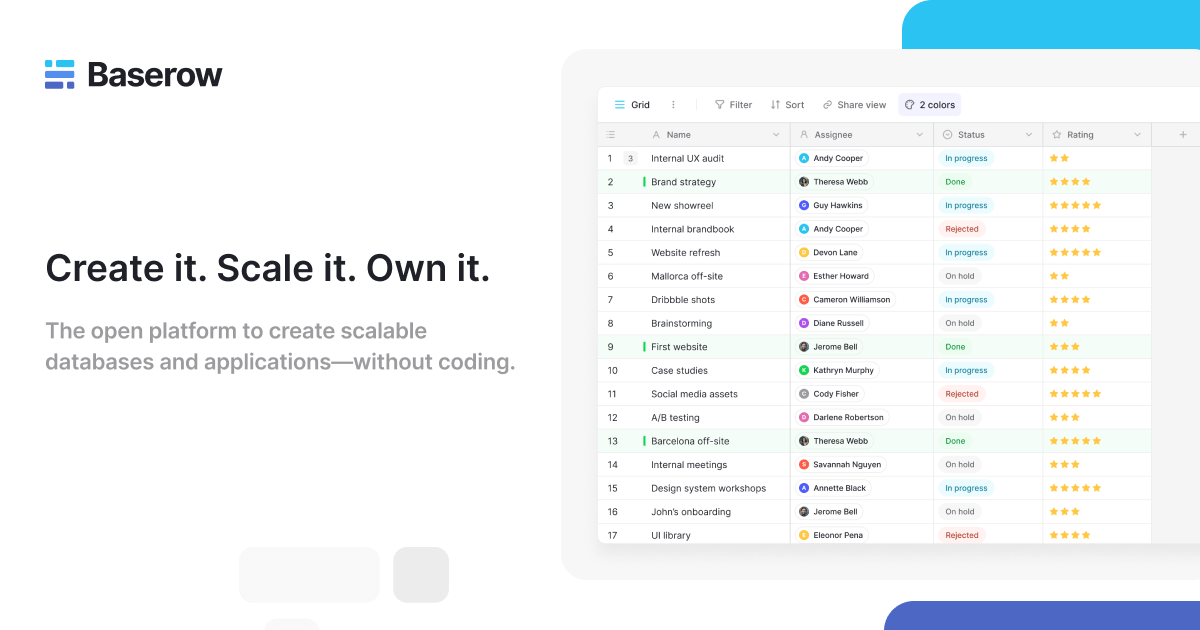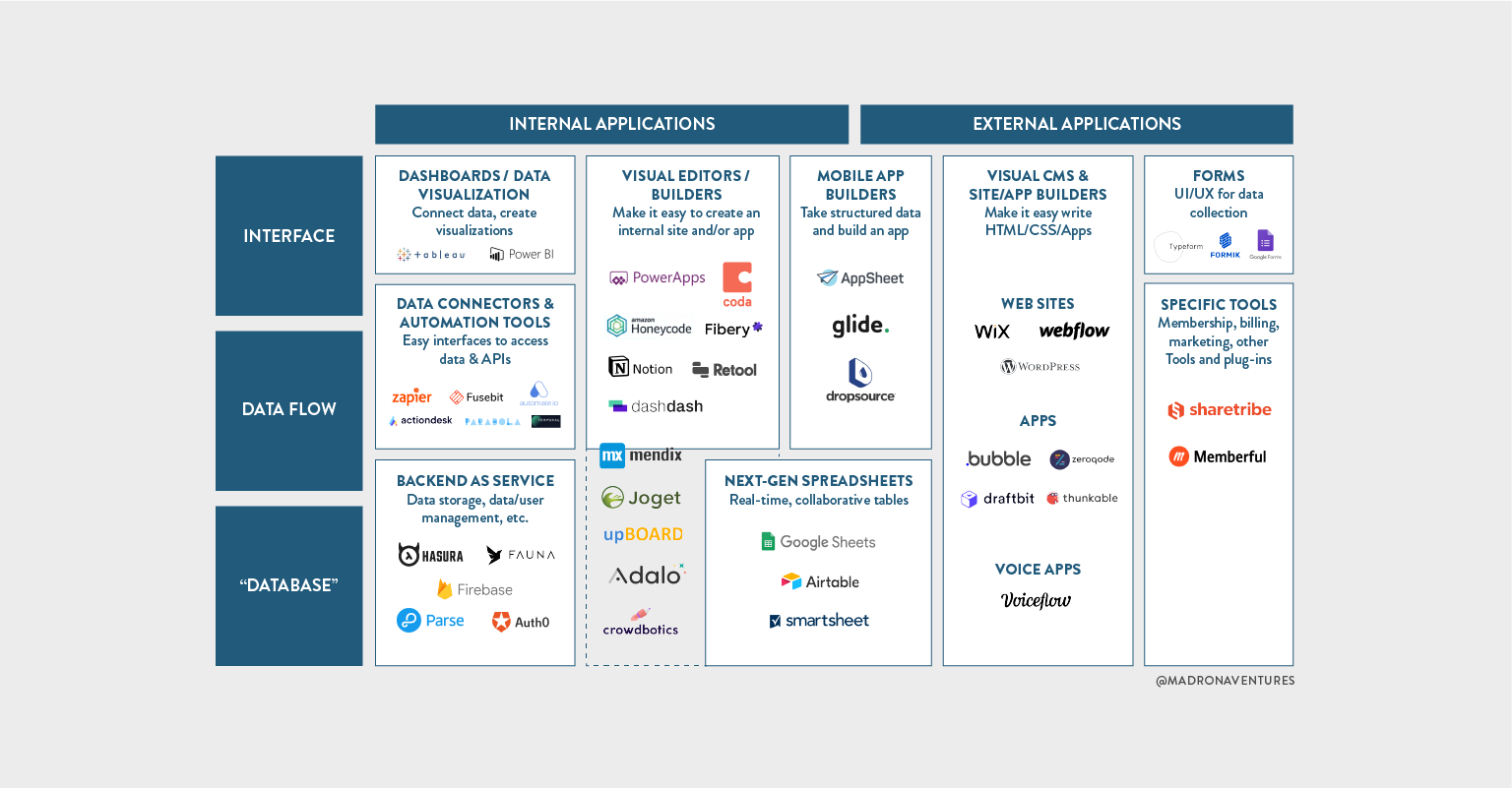Discovering the Benefits of Scalable Databases That Require No Coding Skills for Effective Data Monitoring Solutions
The emergence of scalable data sources that remove the necessity for coding skills provides a transformative possibility for organizations seeking efficient data administration remedies. As we think about the effects of such developments, it becomes important to examine how they can improve the landscape of information management and drive lasting growth in an affordable environment.
Improved Availability for Individuals
Improved availability for individuals is a critical aspect of scalable databases, ensuring that data administration systems are intuitive and user-friendly. In an era where data-driven decisions are paramount, accessibility permits a wider series of individuals, including those without considerable technical experience, to involve with data source systems effectively. This democratization of information accessibility promotes boosted cooperation throughout divisions, encouraging staff members to make and draw out understandings educated choices.
User-friendly interfaces, such as aesthetic information and drag-and-drop functions depiction, streamline intricate data communications. These enhancements reduce the knowing curve connected with standard database administration, allowing users to focus on leveraging information rather than grappling with technical intricacies. Moreover, scalable data sources frequently integrate customizable dashboards and real-time analytics, providing customers with prompt insights tailored to their specific demands.

Cost-Effectiveness and Source Savings
Reliable data management not just hinges on access however also on cost-effectiveness and source cost savings. Scalable databases created for users without coding skills dramatically minimize financial worries normally related to typical database monitoring systems. By getting rid of the demand for specialized programs know-how, organizations can allocate their sources much more successfully, focusing funds on core company activities as opposed to considerable training or hiring experienced workers.
In addition, these databases commonly utilize cloud-based services, which additionally reduce expenses connected to hardware and maintenance. Organizations can scale their database remedies according to their needs, staying clear of the expenditures incurred from over-provisioning resources. This versatility suggests businesses can adapt to altering demands without sustaining unnecessary prices, leading to considerable long-lasting savings.
Furthermore, straightforward interfaces enhance data entrance and management procedures, lowering the moment invested in management tasks. This effectiveness converts right into labor cost financial savings, permitting groups to concentrate on critical initiatives as opposed to regular upkeep. On the whole, taking on scalable databases that require no coding skills cultivates an extra economical technique to information management, allowing organizations to optimize their resources while preserving high degrees of operational effectiveness.
Improved Partnership Throughout Teams

Moreover, scalable databases facilitate smooth interaction among team participants. With straightforward interfaces that call for no coding abilities, employees can quickly create, change, and share records or control panels customized to their specific needs. This democratization of data empowers non-technical individuals to contribute insights, improving the collective atmosphere.
In addition, these data sources sustain simultaneous accessibility, permitting numerous customers to deal with the very same dataset concurrently. This function improves efficiency, as teams can take part in joint information analysis without the danger of version control issues. The ability to leave comments or notes directly within the data source additionally promotes dialogue and clarifies data analyses.
Streamlined Information Monitoring Processes
In today's data-driven setting, companies acknowledge the requirement of streamlined data management processes to take full advantage of effectiveness and precision. By leveraging scalable data sources that require no coding skills, companies can simplify their data handling and reduce the intricacies commonly linked with typical data source systems. This availability equips non-technical individuals to engage directly with information, promoting quicker decision-making and decreasing reliance on specialized IT employees.
Structured data administration procedures boost operations by automating regular tasks such as data entry, recognition, and reporting. Automated information integration ensures that info from various resources is aggregated flawlessly, getting rid of silos and fostering a merged view of important company metrics (no-code). Furthermore, easy to use interfaces enable personnel to adjust data quickly, allowing them to produce understandings that drive tactical campaigns without the requirement for considerable training.
This effectiveness not only accelerates functional procedures but likewise decreases the potential for read more human error, making certain that data remains precise and reliable. Inevitably, structured data management processes with scalable data sources bring about enhanced productivity, permitting companies to concentrate on useful reference core activities while guaranteeing that their information management practices are effective and reliable.
Scalability for Growing Companies

For increasing ventures, the ability to scale up or down is crucial. A scalable data source can manage an increase of information created from brand-new customers, products, or services, making sure that service procedures continue to be undisturbed. Additionally, these data sources supply the capability to take care of peak tons efficiently, which is necessary throughout periods of rapid growth or seasonal spikes.
In addition, numerous scalable data source services are made with easy to use interfaces that need no coding skills, equipping non-technical team to handle information efficiently (no-code). This democratization of information management enables organizations to designate resources tactically and reduce reliance on specialized IT employees
Eventually, taking on a scalable database not just boosts operational effectiveness however additionally promotes a setting where companies can advance and innovate without the restrictions of typical database systems. This adaptability settings companies for long-term success in today's affordable landscape.
Final Thought
Finally, scalable databases that need no coding abilities see it here supply considerable benefits for reliable data management. These systems boost accessibility for non-technical individuals, decrease functional expenses, and promote partnership across groups. By improving information monitoring processes and using scalability for expanding companies, such solutions make it possible for organizations to adapt to altering needs properly. Inevitably, the adoption of these straightforward databases promotes technology and positions companies for long-lasting success in a vibrant setting.
Improved ease of access for users is an essential facet of scalable databases, guaranteeing that data management systems are easy to use and intuitive.User-friendly user interfaces, such as visual information and drag-and-drop attributes depiction, simplify intricate information communications. Overall, embracing scalable databases that call for no coding abilities fosters an extra cost-effective approach to information administration, allowing companies to maximize their resources while maintaining high levels of functional performance.
By leveraging scalable data sources that call for no coding abilities, services can streamline their data handling and lower the complexities generally associated with typical data source systems - no-code.Streamlined data monitoring procedures improve operations by automating regular tasks such as data access, recognition, and reporting